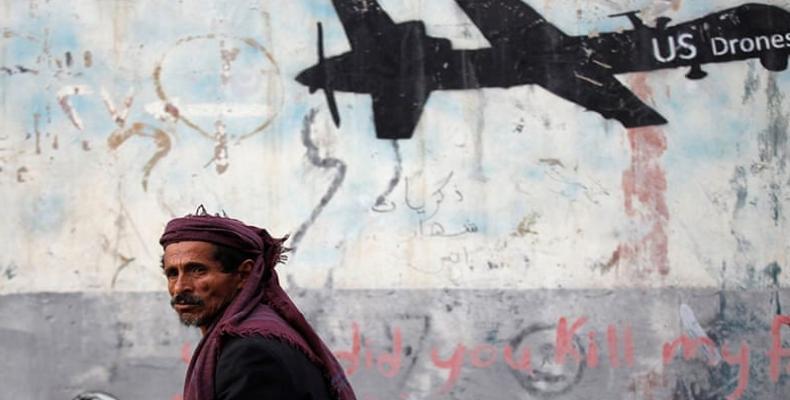Washington, January 12 (RHC)-- The United States military tried, but failed, to kill another senior Iranian commander on the same day a U.S. drone strike killed the Islamic Revolutionary Guard's top general, Qassem Soleimani, U.S. officials have admitted.
Officials said a military air attack targeted Abdul Reza Shahlai, a high-ranking commander in Iran's Islamic Revolutionary Guard Corps (IRGC), but the mission was not successful. The officials spoke to the Associated Press news agency on condition of anonymity in order to discuss a classified mission. The Pentagon declined to discuss the highly classified operation.
"We have seen the report of a January 2 air strike in Yemen, which is long understood as a safe space for terrorists and other adversaries to the United States. The Department of Defense does not discuss alleged operations in the region," said Navy Commander Rebecca Rebarich, a Pentagon spokesperson. The Washington Post first reported the development.
The U.S. Department of the Treasury said Shahlai was based in Yemen and accused him of "a long history of targeting Americans and U.S. allies globally" -- including killing U.S.-led coalition forces in Iraq. It has offered a $15 million reward in connection with him under its "Rewards for Justice" program.
The unsuccessful operation against Shahlai may indicate that the Trump administration's killing of Soleimani last week was part of a broader operation than previously explained, raising questions about whether the mission was designed to cripple the leadership of the IRGC or solely to prevent an imminent attack on Americans as originally stated.
The Trump administration has been under fire by Democrats and two Republicans in Congress over its decision to order the drone strike that killed Soleimani. In an interview that aired earlier on Fox News, U.S. Secretary of State Mike Pompeo acknowledged that Washington did not know "precisely" when or where the imminent attacks allegedly being planned by Soleimani would take place, but said the threat was "real".
U.S. military operations in Yemen are shrouded in secrecy -- primarily because they are illegal under international law. U.S. officials said the operation against Shahlai remains highly classified, and many declined to offer details other than to say it was not successful.


